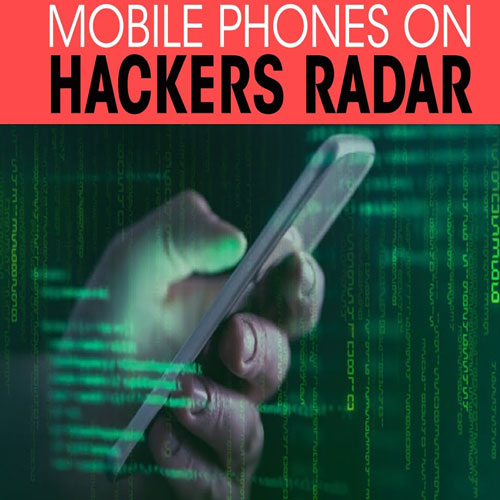Mobile phones on Hackers Radar

Mobile is the new playground for hackers as traditionally organizations avoid investments in the same as they are largely employee owned. Mobile devices now account for more than 60% of digital fraud, from phishing attacks to stolen passwords. Mobile security threats are on the rise: Using our phones for sensitive businesses such as banking makes security even more essential. Technology companies into Cyber security and mobile security space are seeing this as an opportunity for growth, as huge amounts of attacks are happening in this space globally.
Mobile devices are now a key part of our personal and professional lives. Because of the number of fake emails we receive, most of us have become quite good at identifying phishing and spam messages. To help prove their credibility, many organizations now send duplicate messages to our mobile devices, such as push notifications or SMS texts repeating key information and instructions.
Hackers know that they too can increase the apparent credibility of their phishing messages by doing exactly the same thing. So next time you receive an email and a mobile notification, take a moment to check if it is real – or if someone is trying to scam you.
However, smartphone security has not kept pace with traditional computer security. Technical security measures, such as firewalls, antivirus, and encryption, are uncommon on mobile phones, and mobile phone operating systems are not updated as frequently as those on personal computers. Mobile social networking applications sometimes lack the detailed privacy controls of their PC counterparts.
Cybercriminals will use any of the techniques to try and install spyware on your smartphone. Spyware runs in the background stealing sensitive personal information, particularly passwords and payment details, and sends it back to the hacker.
Without strong security standards, many smartphone apps can make your information vulnerable to malicious actors. App developers might use weak encryption algorithms that are easy to hack, or unintentionally share digital “tokens” that allow hackers to impersonate real people online. Unfortunately, there is “very little that the average person can do to know which apps don’t do a good job with security.
Hackers can use the information they gather to launch other cyberattacks, such as breaking into your company network – or to empty your personal bank account.
See What’s Next in Tech With the Fast Forward Newsletter
Tweets From @varindiamag
Nothing to see here - yet
When they Tweet, their Tweets will show up here.






























